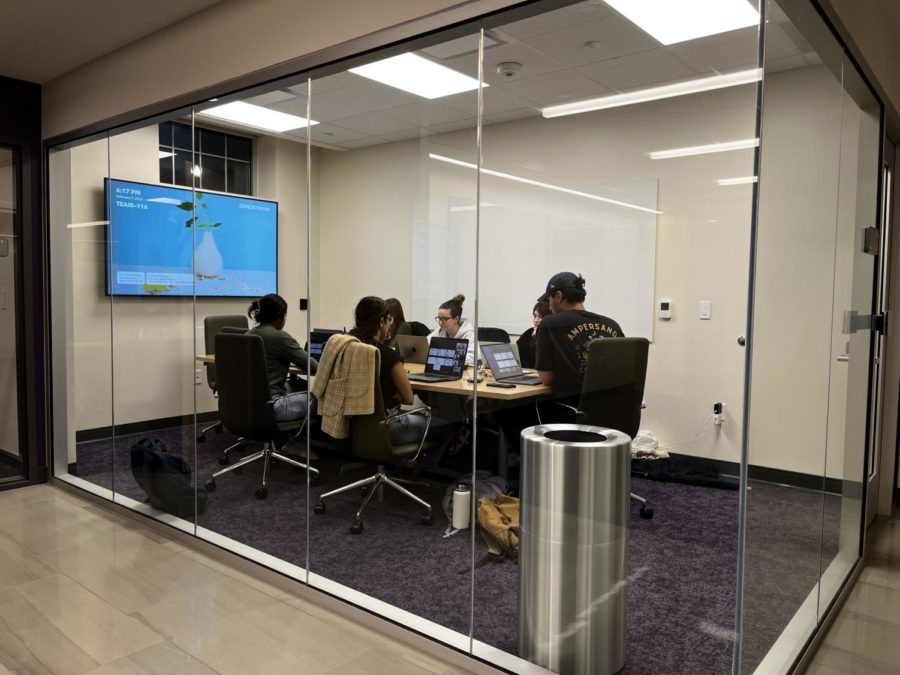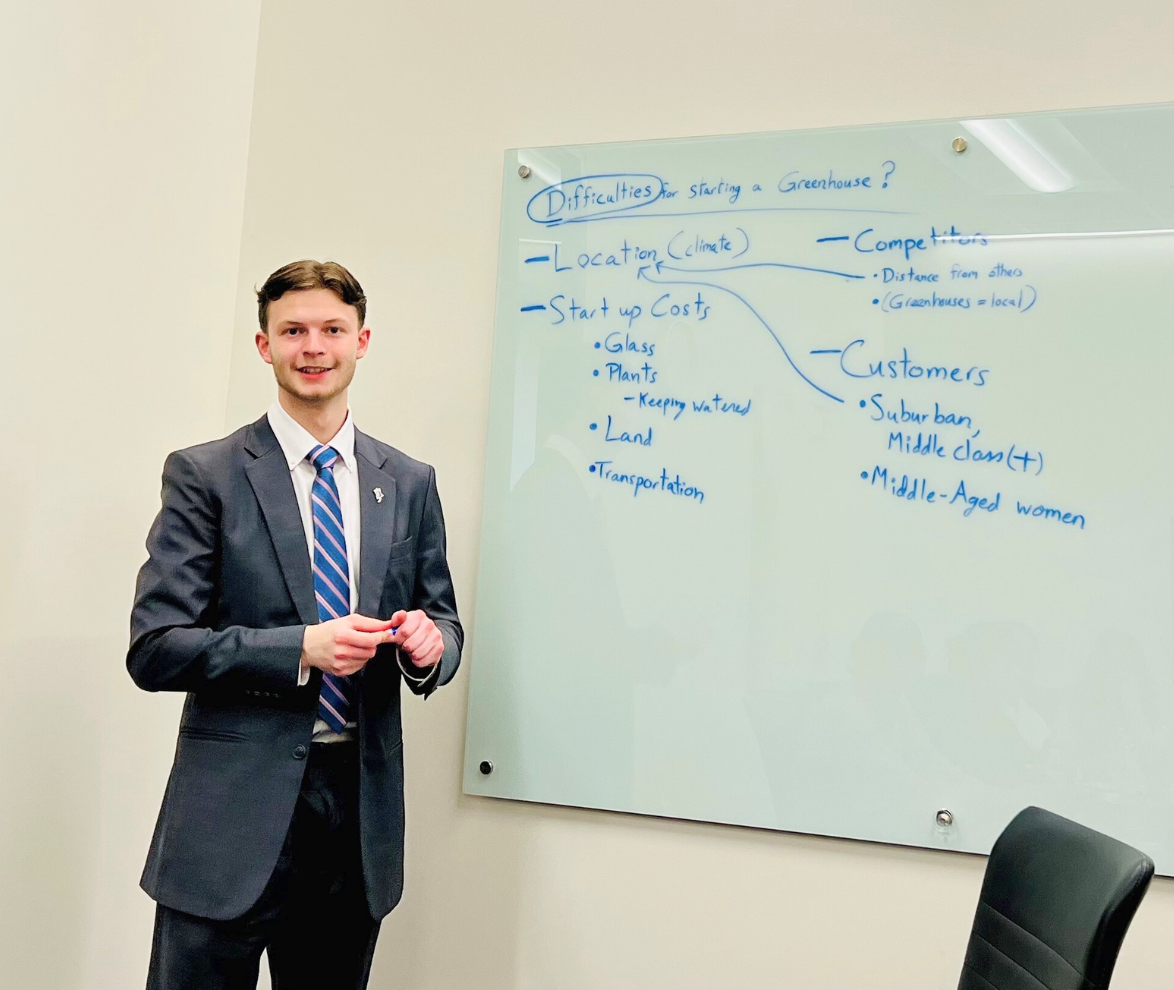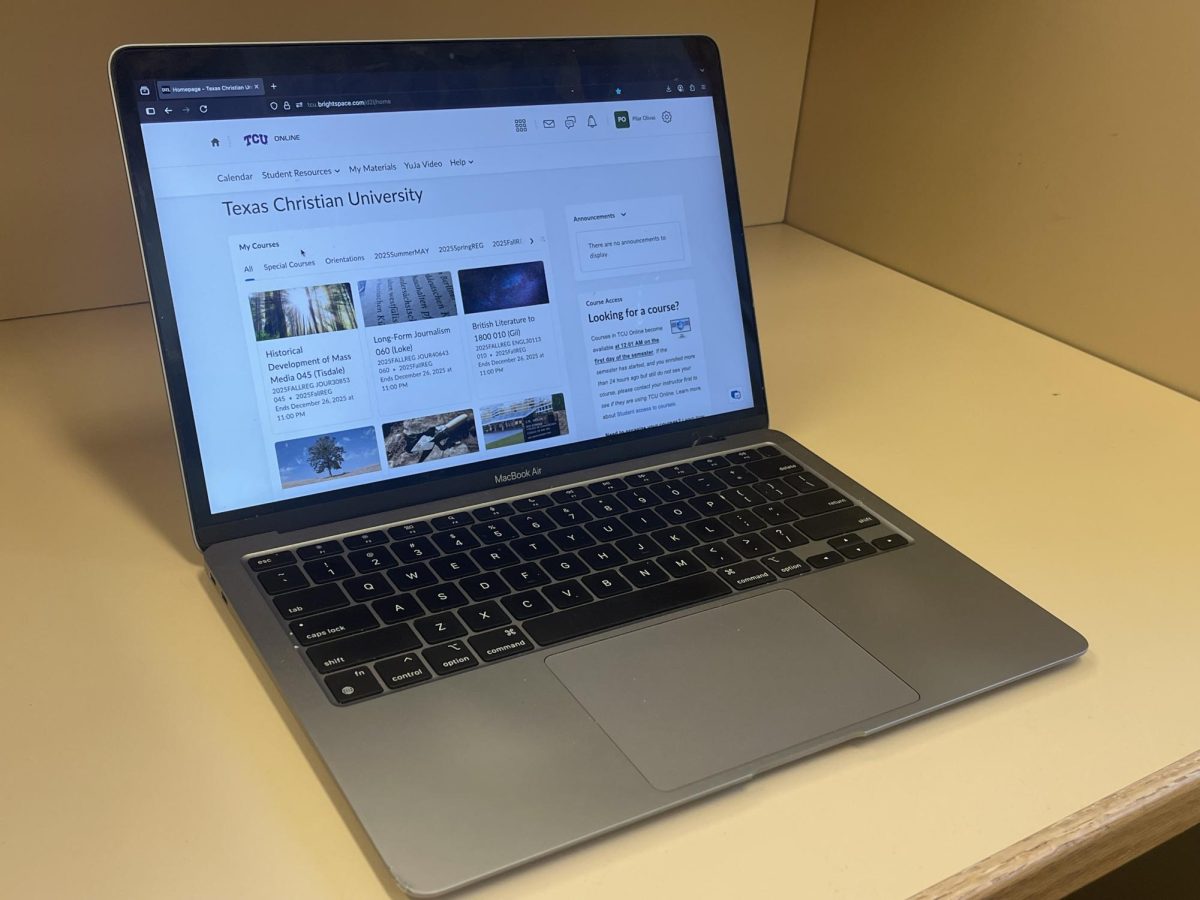With finals quickly approaching, students can start setting themselves up for success now.
On Nov. 10, Honors Academic Advisor Justine Grace shared tips with students in a series put on by TCU’s Community Engagement called the “Student Success Series: Survival Tips for Finals.” She presented emotion-focused and problem-focused coping strategies in a brief presentation.
Emotion-focused coping strategies offer immediate solutions to students struggling with their mental health during finals week. Problem-focused coping strategies are long-term studying and learning mechanisms that students can use throughout the academic school year.
The categories were divided into four tenets of success: making a plan, taking care of yourself, using resources and having fun.
“I think that these four tenets work holistically to help students understand that there’s not just one element to being successful, especially toward the end of this semester,” said Grace.
Make a plan
First, students are encouraged to make a plan.
- Breaking it down: What will take the most amount of time? What is something that can wait? What is an easy win? These are questions students can ask themselves when deciding what to work on first.
- Writing it out: Students should write down upcoming assignments and exams in a planner and double-check their syllabi. Personal events and exams collide during finals week, so students should prioritize what’s most important and figure out when to get it done. Writing information down locks this information into memory.
- Creating smart goals: Having specific dates to have assignments completed by gives students a clear goal and set deadline. Students should schedule at least 30 minutes to focus on an assignment. Students are less likely to criticize themselves for doing less if they add on an extra 30 minutes after a small break.
- Being productive: Starting assignments earlier beats last-minute cramming and allows students to worry less.
If students are still worried, they should write down their concerns and the steps they can take to address them, said Grace. This will give their minds a break so that they can focus on their work instead of the ideas that make them anxious. They can always go back to their notes later to review their worries and solutions.
The stress from deadlines and heavy workloads eats away at students’ short-term memory, creating more stress and inefficiency in completing assignments.
Practice self-care
Stress and busy schedules often leave students feeling like there’s no time for themselves, but self-care is more important than a deadline.
“I think that you, the student, or you, the person, is more valuable than you, the student that gets an A, so take care of yourself and realize your boundaries,” Grace said.
Here are some ways to practice self-care.
1. Getting enough sleep: Students should aim for seven to nine hours of sleep each night and try to maintain a consistent sleep schedule. A consistent sleep schedule helps with short-term memory. Not sleeping hinders the transferring of information.
Going to sleep on time is a basic need, not a reward. Students should never ‘reward’ themselves with a basic human necessity.
“There are other things to reward yourself with, but going to bed is not one of them,” Grace said.
2. Fueling the body: Focusing on hydration and drinking plenty of water between other drinks, like coffee and energy drinks, is crucial. Caffeinated drinks shouldn’t dictate how a student is feeling and control their energy level.
Students should eat healthy meals and snacks, balancing proteins with carbs. Try to avoid chips and junk foods and settle instead for almonds or nutrition bars, Grace said.
3. Moving around: Exercise is important, even if that means moving for just 30 minutes. This could mean walking, running, dancing, lifting weights, swimming or playing sports.
If students are looking for an alternative method, they should consider deep breathing exercises, yoga, cardio, meditation, a massage or even a warm bath.
4. Separating workspaces: Students should always keep their workspaces separate from their leisure spaces. These spaces create habits in the brain, so creating a sleep place that’s relaxed and safe rather than tense and anxious is vital. If study mode is in bed, it’s difficult for the brain to turn off that natural response to seek sleep, whether it’s subconscious or not. Be sure to make this workspace comfortable and productive to make it easier to spend time there. Chances are, students will be more productive if they’re comfortable and in a good mood.
Use resources
TCU offers an abundance of resources for students.
“One of the biggest struggles I see with students is not realizing that they have a bunch of resources at their fingertips, and they figure this out way late into the semester,” Grace said.
Here are some ways to utilize resources.
- Reaching out: TAs, professors and all of TCU faculty want students to succeed, so students should never hesitate to reach out and get some extra help and connection. Students should seek help from their instructors and let them know that they would like to finish strong and that they appreciate their help.
- Finding a focus: Instead of asking a professor how to score an ‘A’ in the class, students should ask where they stand in the class and what they should focus on to be successful.
- Creating a routine: If students have discovered methods that ensure success, they should keep doing them. Joining study groups or getting tutored are just two of many ways that can benefit students.
- Getting help: Successfully making it to the end of a semester can be a stressful and overwhelming task. This kind of pressure can bring up experiences of past stressors and/or trauma. If there comes a point where these ways to support students aren’t enough, students are highly encouraged to reach out to TCU’s Counseling and Mental Health Center or Peer Support Communities.
Have fun
Lastly, Grace said students should be proud of finishing a semester in person.
“Students deserve that ice cream or new pair of shoes after everything they’ve accomplished,” she said.









